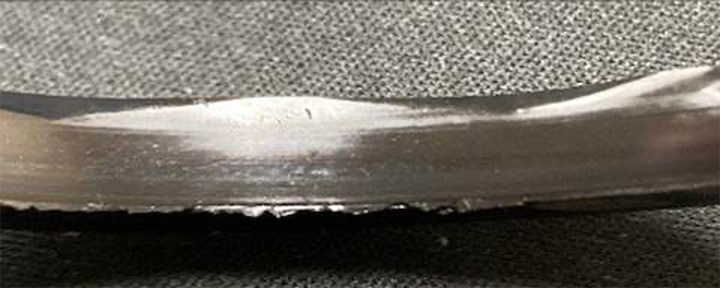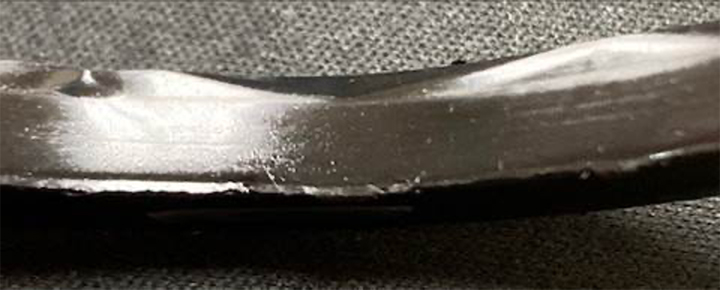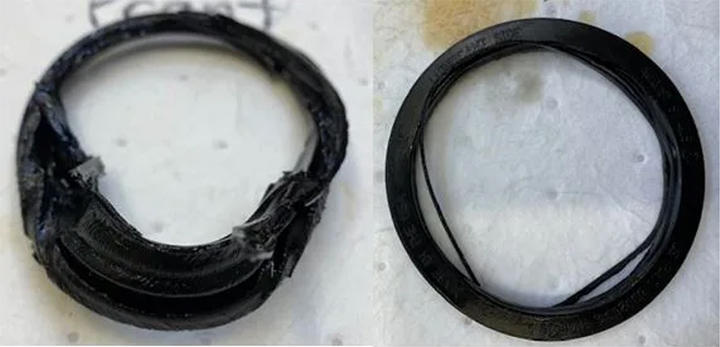Kalsi Engineering is excited to announce successful laboratory testing of an Extra Wide Hybrid seal that is a drop-in replacement for the 507-series mud motor seal. This Extra Wide Hybrid Seal fits in the same groove as the 507-series seal and has performed very well at pressure and temperature conditions that a 507-series seal fails at in just hours. See below for a summary of the test results.
As a refresher, the Extra Wide Hybrid Seal was developed to replace 507-series seals in mud motor designs that require larger extrusion gaps and high differential pressure at the pressure retaining rotary seal location. Because the Extra Wide Hybrid seal has a 1.6X wider dynamic lip than a 507-series seal it can operate at a significantly higher differential pressure. In addition to being more pressure capable, the additional dynamic lip width of the Extra Wide Hybrid Seal provides more sacrificial material to accommodate third body abrasive wear from particles in the drilling fluid.
By using the manufacturing insight we gained from our BDRP hydraulic swivel seals, we are now able to manufacture Extra Wide Hybrid Seals that have the same axial height as the 507-series seal, and therefore fit in the same groove. This means that you can get all the performance advantages of the Extra Wide Hybrid Seal without having to modify your mud motor housing.
A direct replacement Extra Wide Hybrid Seal can be made for any size of 507-series seal. For additional information, contact our engineering staff.
Test summary of Extra Wide Hybrid Seals with a 0.240” axial cross-section
We tested a pair of 2.75” diameter Extra Wide Hybrid Seals™ that are direct replacements for the 2.75” diameter 507-5-11 seal. The tests were performed at 480 RPM (345.6 sfpm) with an ISO 320 viscosity grade lubricant that was maintained at 302°F (150°C). The seals were installed in a seal carrier with a 0.020” radial extrusion gap and the shaft had an intentional 0.010” runout. For comparison, we tested a pair of 2.75” diameter 507-series mud motor seals with the same test setup at the same conditions.
The Extra Wide Hybrid Seals successfully ran for the planned 24 hours at 1,500 psi. As can be seen in Figure 1, the Extra Wide Seals are in good condition and could have continued running at these conditions. The 507-series seals only lasted about an hour at 1,500 psi before one of the seals failed due to gross extrusion damage. The severely damaged 507-series seals are shown in Figure 2.



